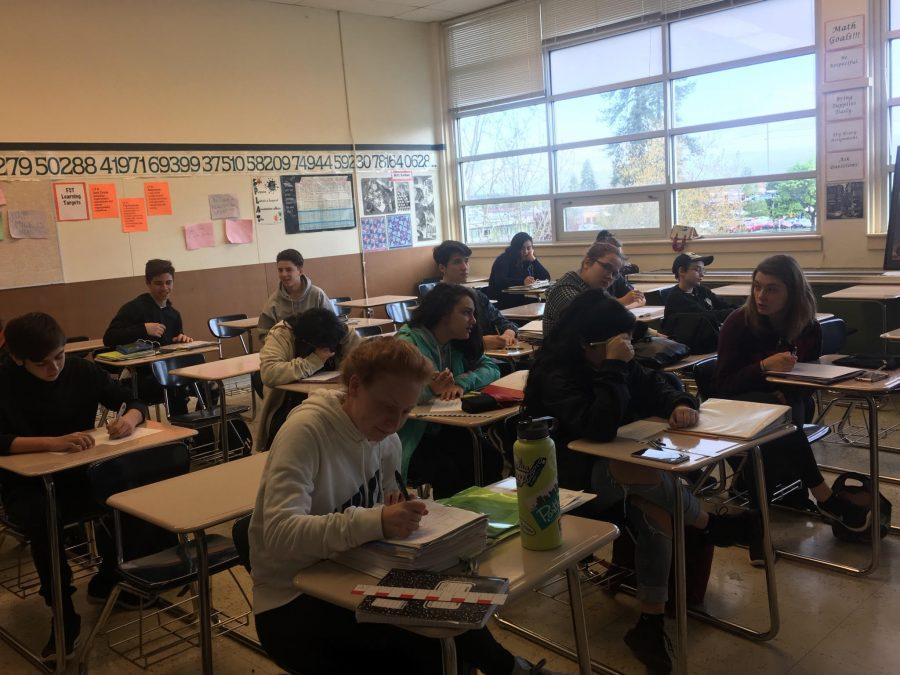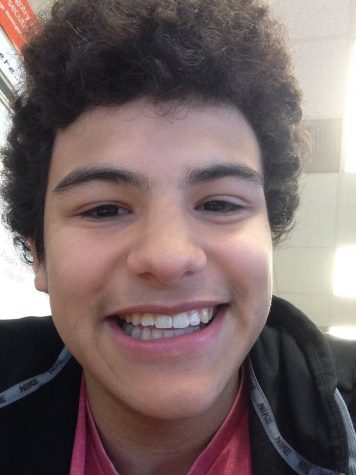New math program carries problems—and is here to stay
Students in Ms. Weber’s AGS class solve a geometry problem. The new math curriculum has been met with controversy from both students and staff.
Math in high schools in the Beaverton School District has always been one year of algebra, one year of geometry, and one year of algebra (usually in the form of Algebra II). But a new district-wide curriculum called Algebra, Geometry, Statistics, or AGS, breaks this tradition by integrating algebra, geometry, and statistics into the same class over three years.
AGS attempts to fix the gap between Algebra I and Algebra II while emphasizing statistics, which is seldom taught outside of AP Statistics. But there has been a backlash from the teachers, and for many students, AGS is difficult.
“AGS is horrible,” said Ben Wichser, a math teacher at Beaverton. “It has been a complete and unmitigated disaster.”
While the program has some “thoughtful” and insightful instruction and a thought-out curriculum, it assumes students understand concepts such as function notation and basic algebra. In a perfect world, this would be the case, but many students do not fit this category. AGS is also word-heavy, making it difficult for non-English speakers to understand the content. The result is a jumble of words, patterns, and numbers, which becomes more confusing when students’ basic math skills are not as sharp as they should be.
“The intent [of AGS] was to improve the quality of the math that kids knew, and part of it is trying to meet with the ever-changing standards. Our standards switched from topic-based to problem-solving, communication,” said Beaverton math teacher Jason Sarmiento.
AGS has been requires that teachers teach in a different manner. It is designed to be conversational, with a heavy emphasis on story problems. “Students cannot look back onto a book like they would traditionally if they missed a class,” said Sarmiento.
Although many teachers seem to dislike AGS, vice principal Allyson Dubuque thinks otherwise. “Our teachers are doing a stellar job. [I see] absolutely fantastic teaching and learning happening. They are engaging with really difficult math problems [and] I see that there’s been a lot of successes for students.”
Students who succeed this year in AGS I will go on to AGS II, and eventually to AGS III or a more advanced version, accelerated AGS III.
“AGS gives [students] the skills to be critical thinkers, and problem-solvers in landscapes that are changing very, very rapidly,” said Dubuque.
Though many teachers have had to work double-time to create a usable math curriculum, the school district has no intent on reverting to the previous program.





![District changes have led to restrictions on AP classes for underclassmen [Graphic made with Canva].](https://beavertonhummer.com/wp-content/uploads/2024/06/Comic-Bonanza-600x600.png)

